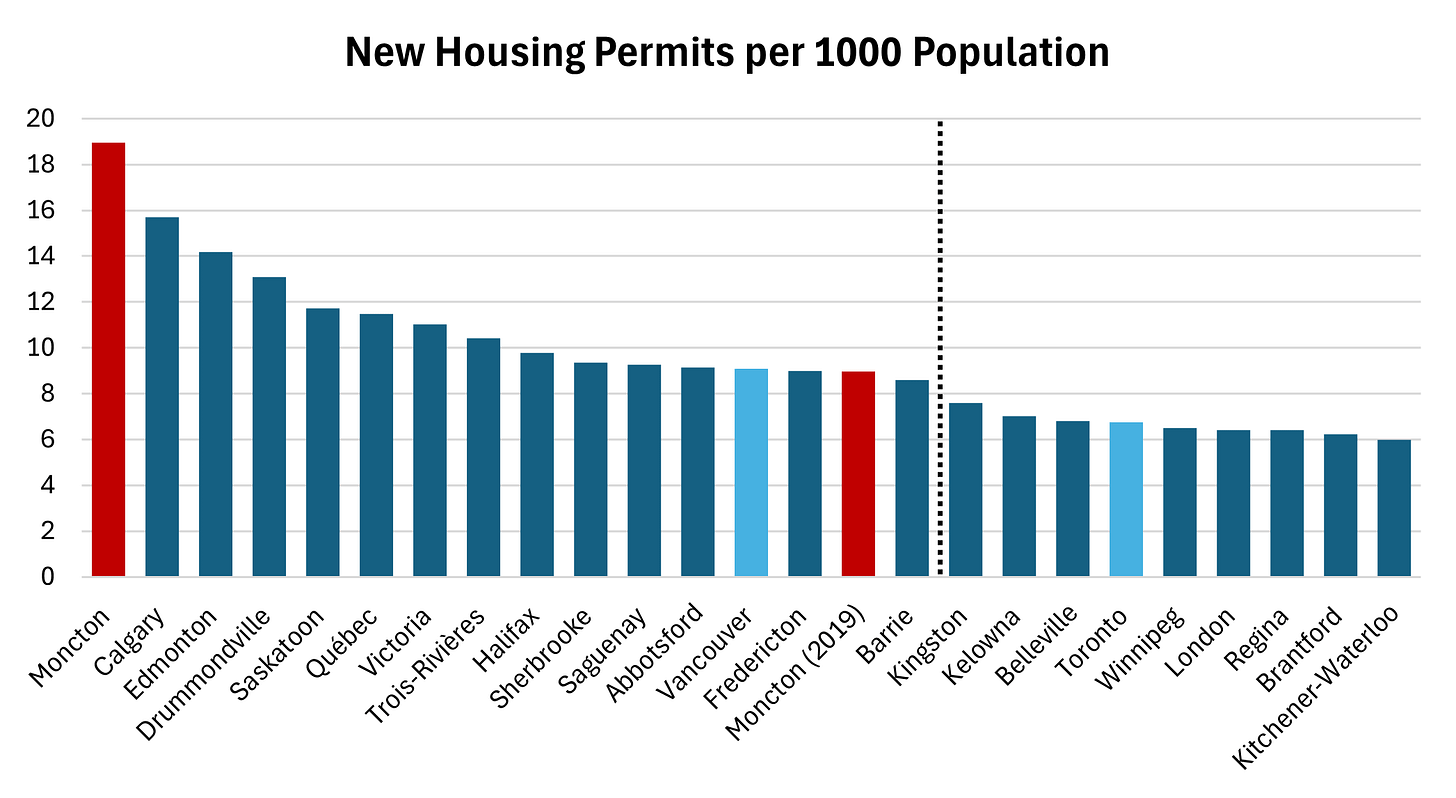While idly looking at housing permit data1, something popped out immediately. One of the lines soared far beyond the others. Even among the subset of small cities, where some say the bar is lower because a few projects can inflate the number, Moncton stands apart.
While most other small cities have ramped up homebuilding, sometimes doubling or slightly more, Moncton has increased its permitting pace by 5 times.
The rise in permits is now being followed by a surge in completions as well. More interestingly, Moncton’s homebuilding isn’t from single-family suburbia. Rather, the increase has come from the emergence of an apartment building industry. For decades Moncton built only about 250 apartment units per year, relying heavily on single family homes for new supply. But now, the city is adding nearly 2,000 apartment units per year.
If we go back to the permit data, Moncton is allowing more units relative to its population than any other city in Canada. Even though its pre-COVID pace was respectable (enough to rank above our current national average), Moncton more than doubled than paced in the 12 months through April 2025.
Moncton has joined the ranks of Calgary and Edmonton - which have a history of strong population growth that New Brunswick lacks.
How is this surge made possible? I can see a couple factors. First, fast timelines. A 2024 study from the Altus Group shows that while a builder could waste 2 years applying for permits in Toronto, in Moncton that’s about 2 months. Then, with permits in hand, Toronto wants $134,000 per unit in fees and taxes for the pleasure of building homes. In Moncton? It’s only $1,600. Near zero municipal fees on housing make many more projects viable - and those projects are happening.
As Ontario municipalities devour themselves debating how “growth pays for growth” (read: new homebuyers paying for existing homeowners’ services), Moncton has chosen just to build2. While Moncton has still struggled to keep up with population growth, its pace of homebuilding bodes well for both housing affordability and the economy in the hub city.
Permits don’t mean new units, but they usually do become units soon after, and are a better real-time gauge than housing starts, which are only counted once the foundation is poured: that can be months after construction starts - especially for big apartments
It may be less of a choice than an accident or overthought. Atlantic Canada desperately needs growth and investment, and saying no to construction jobs is a tougher ask when you understand that your region is always at risk of a death spiral






